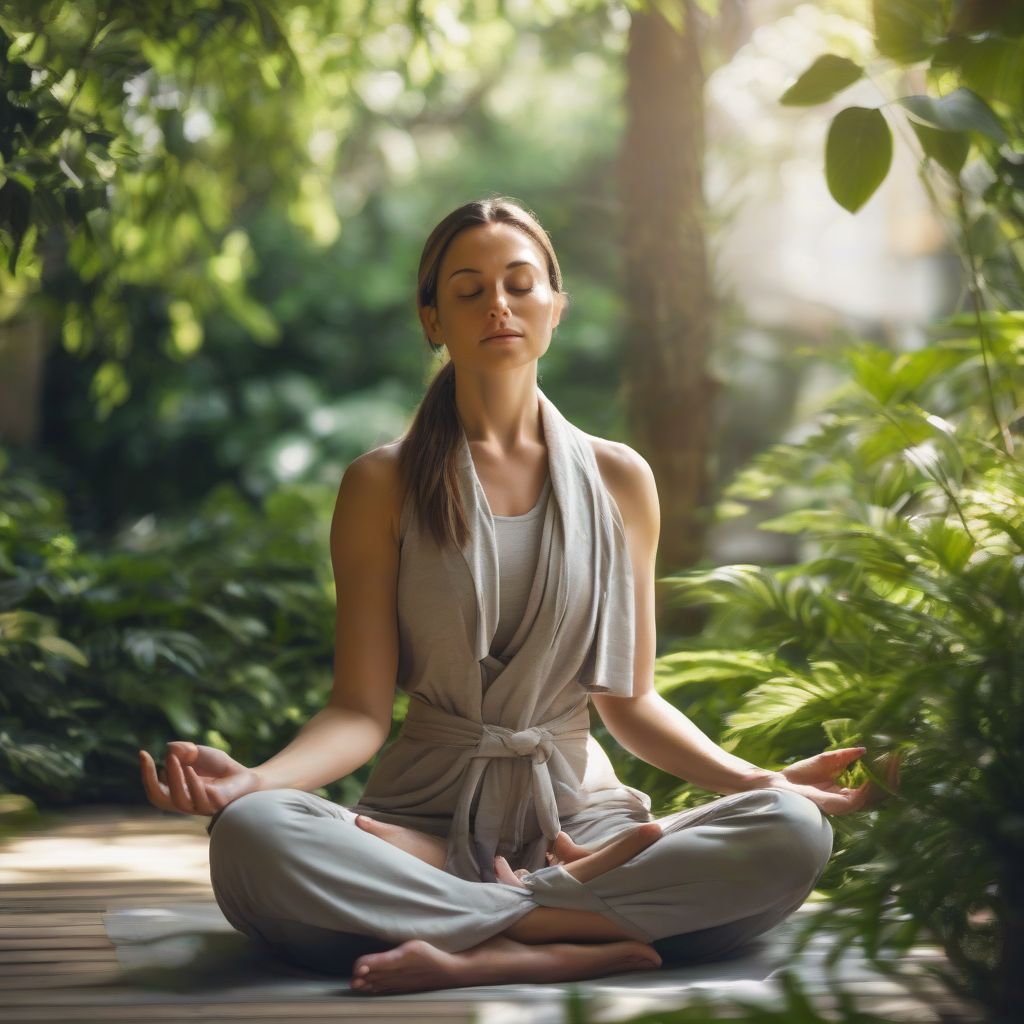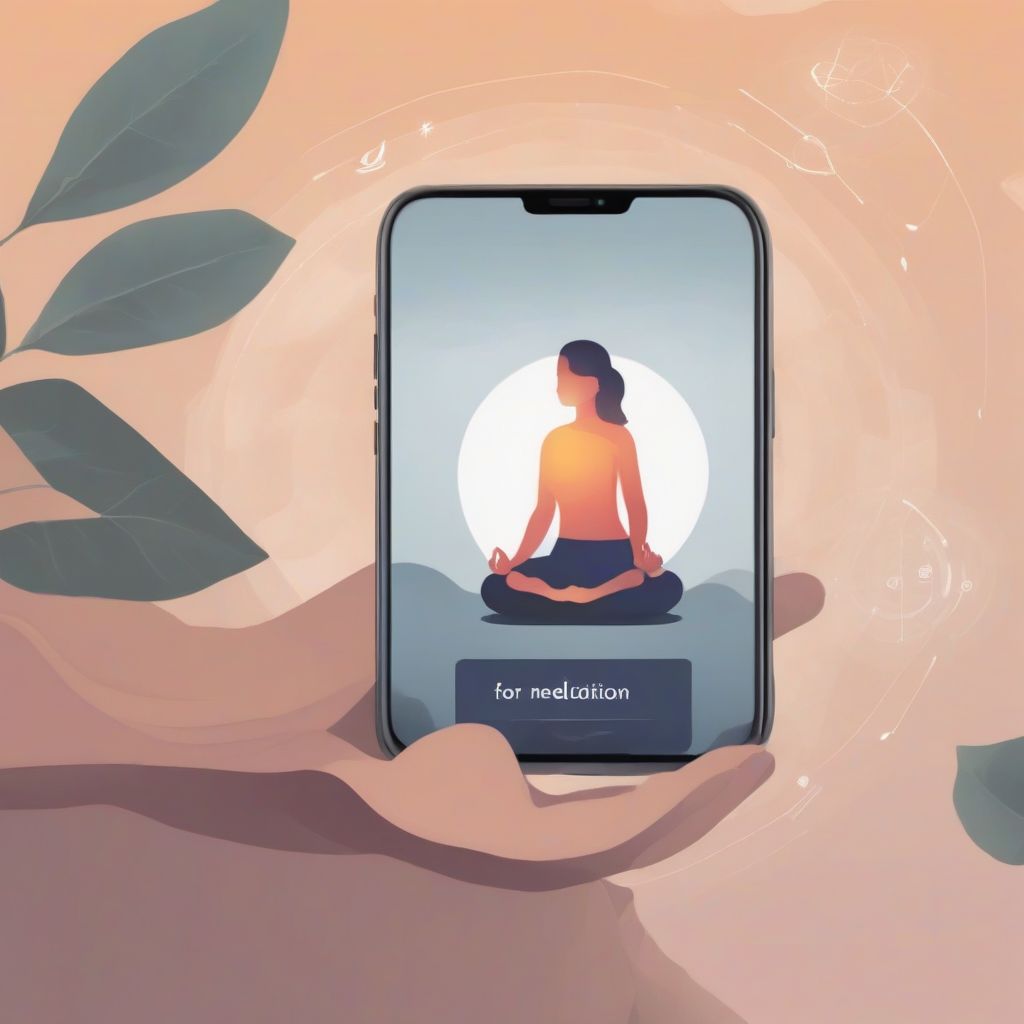Have you ever noticed how stress can leave you feeling mentally drained, like your battery is stuck on 1%? We live in a world full of constant demands and distractions, and it’s easy to feel overwhelmed. Meditation is like hitting the “recharge” button for your mind. It’s a practice that helps you find inner peace, clarity, and focus amidst the chaos. But how do you actually make meditation a part of your daily routine?
As a nutritionist and meal prep coach, I understand the power of incorporating healthy habits into your daily life. Just like setting aside time for meal prep can nourish your body, creating a daily meditation practice nourishes your mind and spirit. And the best part? It’s easier than you might think!
Understanding the Benefits of Daily Meditation
Before we dive into the “how-to,” let’s talk about why you should even bother. What’s so great about meditation, anyway? Well, scientific research shows that regular meditation can lead to:
- Reduced Stress and Anxiety: Meditation helps you manage the stress hormone cortisol, allowing you to respond to challenges with more calmness and clarity. ([1])
- Improved Focus and Concentration: Regular meditation enhances your attention span and cognitive abilities.
- Emotional Regulation: Meditation equips you with tools to observe your emotions without judgment, leading to better emotional regulation.
- Increased Self-Awareness: Meditation creates a space for self-reflection, helping you understand your thoughts, patterns, and behaviors.
- Enhanced Compassion and Empathy: Meditation cultivates feelings of kindness and understanding toward yourself and others.
 Woman Meditating in Nature
Woman Meditating in Nature
Steps to Build Your Daily Meditation Practice
Now, let’s break down the process of creating a sustainable meditation routine:
1. Choose a Quiet Space
Find a spot in your home where you can sit comfortably and minimize distractions. This could be a corner of your bedroom, a cozy spot on the floor, or even your backyard.
2. Decide on a Time
Experiment with different times of day to see when meditation feels most natural for you. Many people find morning meditation helps set a positive tone for the day, while others prefer to unwind with an evening session.
3. Start Small
Don’t feel pressured to meditate for an hour right off the bat! Begin with just 5-10 minutes and gradually increase the duration as you feel comfortable. Consistency is key, so aim for short, manageable sessions that you can stick with.
4. Find a Comfortable Posture
Sit with your spine straight but not stiff, whether on a cushion, chair, or bench. If sitting on the floor feels uncomfortable, use props like pillows or blankets for support.
5. Focus on Your Breath
Your breath acts as an anchor to the present moment. Pay attention to the natural rhythm of your inhale and exhale. Notice the sensations of each breath as it enters and leaves your body.
6. Be Kind to Your Wandering Mind
It’s perfectly normal for your mind to wander during meditation. When you notice thoughts arising, gently guide your attention back to your breath without judgment. Treat your thoughts like passing clouds in the sky.
7. Explore Different Meditation Techniques
There are countless meditation techniques available. Experiment with guided meditations, mindfulness meditations, walking meditations, or loving-kindness meditations to find what resonates best with you.
Here are some popular meditation techniques:
-
Mindfulness Meditation: Focus on your breath, bodily sensations, and thoughts without judgment, observing them as they arise and pass away.
-
Guided Meditation: Listen to audio recordings with specific instructions and visualizations, helpful for beginners.
-
Walking Meditation: Bring mindful awareness to the sensations of walking, focusing on each step and your connection to the earth.
-
Loving-Kindness Meditation: Cultivate feelings of compassion and kindness towards yourself and others through specific phrases and visualizations.
8. Incorporate Meditation Apps or Resources
There are many apps and online resources available that offer guided meditations, calming music, and helpful tips for beginners. Some popular options include:
- Calm
- Headspace
- Insight Timer
- Waking Up
 Meditation App on Phone
Meditation App on Phone
9. Make It a Habit
Consistency is key to experiencing the full benefits of meditation. Just like brushing your teeth or eating breakfast, try to make meditation a non-negotiable part of your daily routine.
10. Be Patient and Persistent
Building a meditation practice takes time and effort. There will be days when your mind feels busy and meditation feels challenging. Be kind to yourself, acknowledge the difficulty, and keep coming back to your practice. The more you meditate, the easier it will become.
Resources for Further Exploration
If you’re looking to delve deeper into meditation, here are some books and resources that you might find helpful:
- “Mindfulness for Beginners” by Jon Kabat-Zinn
- “The Miracle of Mindfulness” by Thich Nhat Hanh
- “Wherever You Go, There You Are” by Jon Kabat-Zinn
- Local Meditation Centers: Many cities and towns have meditation centers that offer classes, workshops, and group meditation sessions.
Conclusion
Just like nourishing your body with healthy food and movement, taking time for daily meditation nourishes your mind and spirit. While it might seem challenging at first, remember that starting small and being consistent are key. With practice and patience, you’ll discover the transformative power of meditation and experience its many benefits in your daily life.
Are you ready to start your meditation journey? Share your thoughts or any questions you might have in the comments below! And for more tips on incorporating healthy habits into your life, check out these articles on holistic health and managing anxiety and stress.
[amazon bestseller=”meditation for beginners”]
